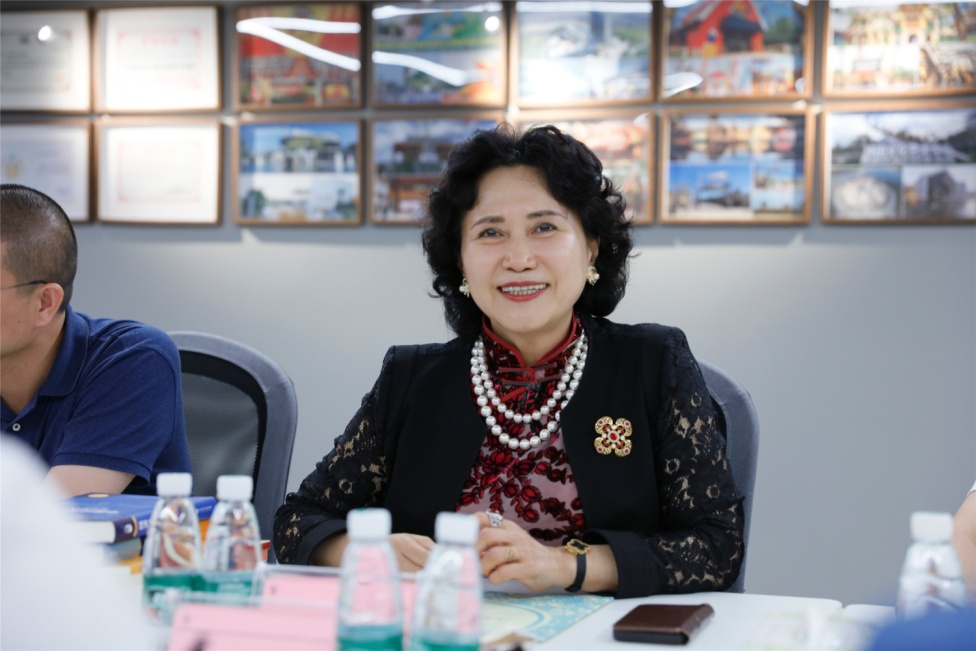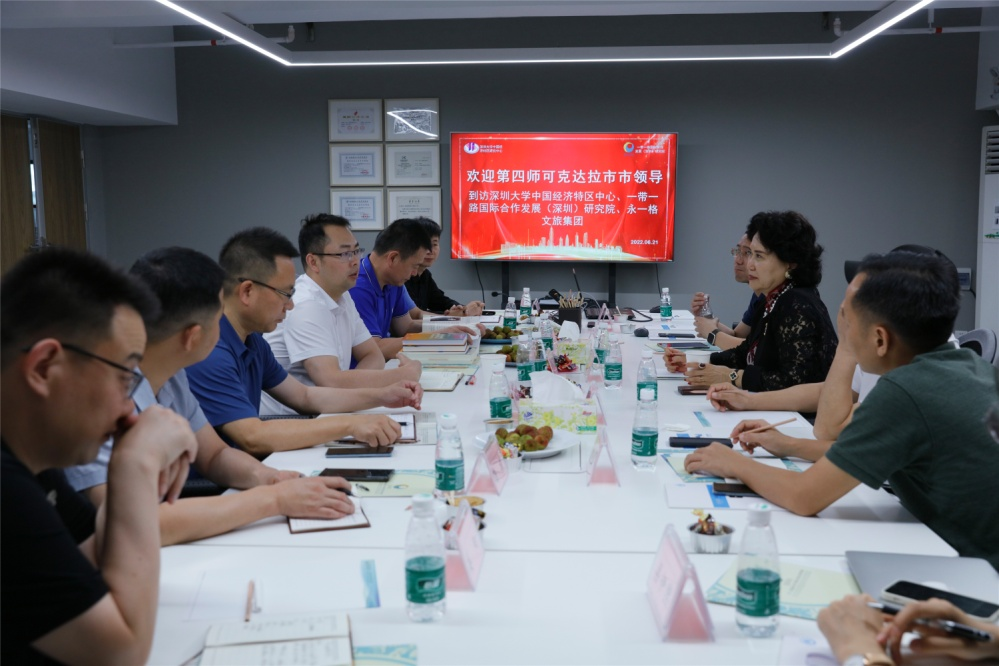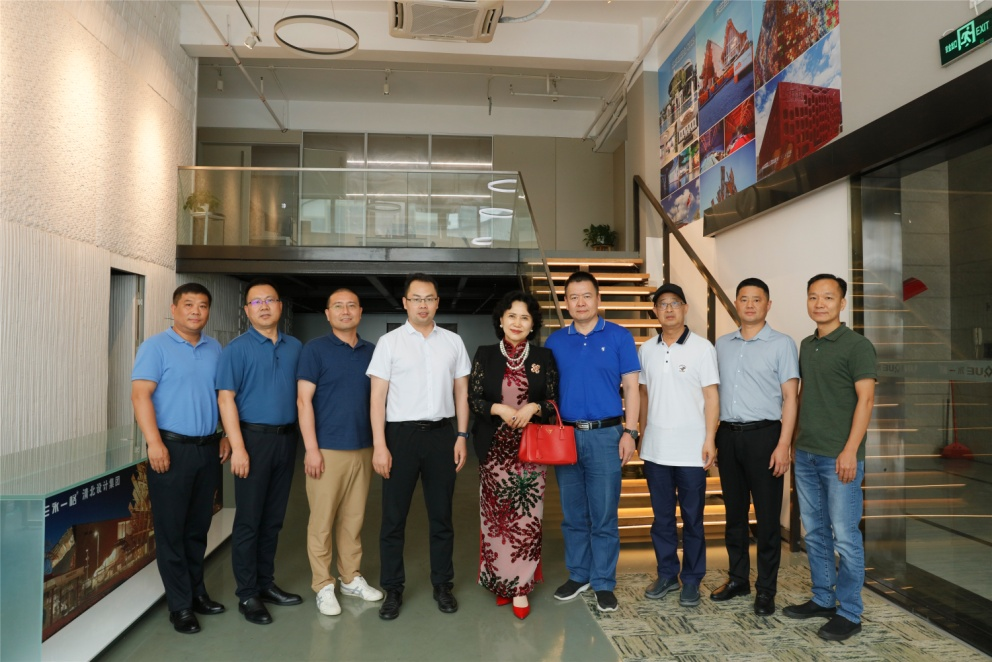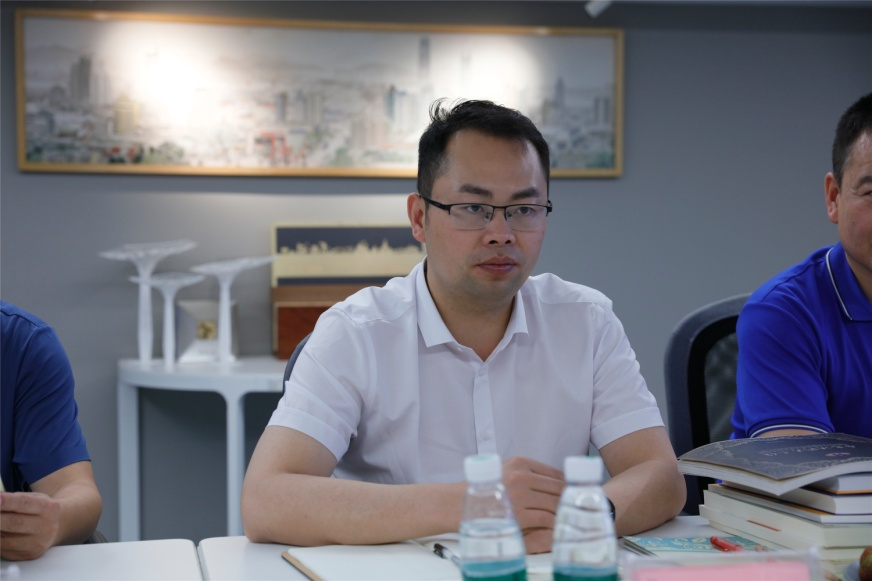On June 21, a delegation led by Lei Haijun, Assistant Division Commander of the Fourth Division of Xinjiang Production and Construction Corps (XPCC), member of CPC Cocodala Standing Committee and Deputy Mayor visited the China Center for Speical Economic Zone Research (CCSEZR), and the Belt and Road Research Institute (Shenzhen) for International Cooperation and Development (BRRI) for exchanges and cooperation. Mr. Lei's delegation included Wu Lijun, Secretary of the Party Leadership Group and Director of the Bureau of Commerce , Tang Zhen, Assistant Director, and He Feng, Director of the Office of Commerce.
Lei Haijun, Assistant Division Commander of the Fourth Division of XPCC, member of CPC Cocodala Standing Committee and Deputy Mayor
Prof. Tao Yitao, Director of CCSEZR and President of BRRI, first extended a warm welcome to the delegation of the 4th Division of XPCC and Cocodala City. She briefly introduced the history of CCSEZR and BRRI, and watched the promotional videos of the World Economic Zone Forum and Cocodala city with the guests, saying that Shenzhen, Shenzhen University (SZU) and CCSEZR have long-term cooperation with Xinjiang, and one of CCSEZR's major academic brands "World Special Economic Zone Forum" has been held in Kashgar for two consecutive years. At present, the Xinjiang construction-aid team mainly consisting of CCSEZR teachers is still helping the development of the Economics discipline of Kashgar University.
Mr. Lei said that the development of the Corps subdivision of Horgos Economic Development Zone has unique advantages: Located in Ili Kazakh Autonomous Prefecture and on the China-Kazakhstan border, the subdivision is endowed with huge market potential and abundant resources; the preferential policies also create the possibility to attract a steady stream of investments. The special management system of the Corps makes it different from other places and has relative independence and greater autonomy in economic development. The Corps subdivision of Horgos Economic Development Zone is witnessing booming development. The changes in the contemporary world trade pattern also provided greater economic possibilities for the future development of the Corps subdivision. Mr. Lei said that to further develop and build Cocodala, we need to learn from Shenzhen.

Prof. Tao Yitao, Director of CCSEZR and President of BRRIICD
Prof. Tao believed that for Horgos, Xinjiang, which borders Kazakhstan, the "Belt and Road Initiative provides great opportunities for its own important geopolitical and economic status and value. In addition, the Corps culture and history also vividly reflect the unique charm and style of the city on the "Belt and Road Economic Belt", and inspire people's yearning for the Corps culture and the beauty of Xinjiang. CCSEZR and BRRI are willing to hold the "World Special Economic Zone Forum" with all parties in Xinjiang to share the successful experience of China's SEZs, build a high-caliber platform for dialog, exchanges and cooperation with Central Asian countries, and implement BRI.
The two sides reached a basic consensus on cooperation in co-hosting the World Special Economic Zone Forum, talent training, park planning and construction, and investment attraction. Zhang Ping, Deputy Director of CCSEZR, Zhao Jingliang, Distinguished Deputy Dean of BRRI, and Luo Senbai, Secretary General of the "Belt and Road Enterprise Alliance", participated in the event.
The "World Special Economic Zone Forum” is an annual international academic conference founded by the CCSEZR, a key research institute of humanities and social sciences under the Ministry of Education. Since 2001, 22 sessions have been held in Quang Ninh, Vietnam; the Far Eastern Federal University, Russia; and Kashgar, Xinjiang, etc.; which have had an important influence in and outside of China, and have received widespread attention and high praise, especially from the majority of developing countries. The Forum has now become an important academic platform for scholars, officials and entrepreneurs in and outside of China to discuss forefront issues such as SEZs, free trade zones, the pathway choice for China’s social institutional reform and the China's Path, making unique contributions to publicizing the successful experience of China’s SEZs typified by Shenzhen, and providing Chinese solutions to development problems for emerging market economies.

A scene of the meeting

Group photo



